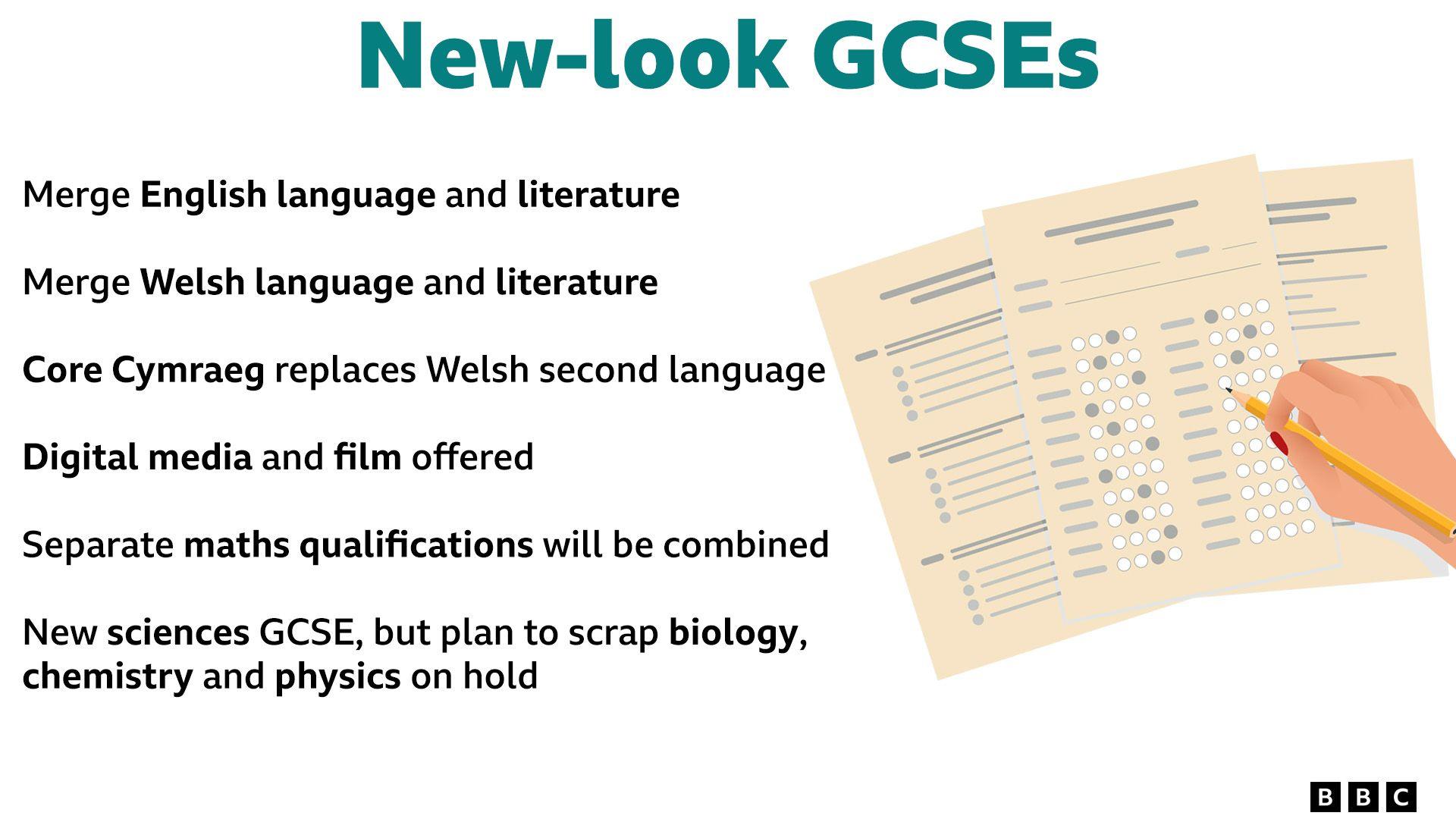What are the changes to Wales' GCSEs and how will they work?

There is more emphasis on assessments throughout the course, rather than exams, in some subjects
- Published
All of the GCSEs offered to 14 to 16-year-olds in Wales have been reviewed and updated, with some new subjects introduced.
Language and literature come under one qualification in English and Cymraeg - as Welsh is now officially named - and brand new GCSEs include film and digital media and dance.
A new double science GCSE will be introduced from September 2026 but the original plan to scrap physics, chemistry and biology as separate courses has been put on hold until at least 2031.
Overall, there will be less emphasis on exams and more assessments throughout the year but maths, for example, is still all exam-based.
Why are GCSEs changing?
Qualifications for 14 to 16-year-olds are changing to fit the new curriculum which has been introduced in Wales.
It aims to offer a broader, more rounded education with an emphasis on the experiences children get, not just knowledge and skills.
From September 2025 it will cover all pupils in Wales up to the ages of 14-15.
Current Year 10 students starting their GCSE courses will be the first to be awarded the qualifications in 2027.
Fifteen new qualifications are in the first wave of changes, with other reformed GCSEs to be added in September 2026.
A range of VCSEs - a new brand for vocational qualifications - will be taught from September 2027, along with updated foundation and skills qualifications.

What's happening to the Welsh Bacc?
The Welsh Baccalaureate for 14 to 16-year-olds will come to an end as part of the changes and it will be awarded for the last time in summer 2026.
The Advanced Skills Baccalaureate Wales will still be offered at post-16 level.
Sex education campaigners lose bid to appeal
- Published7 June 2023
Workers misspell school when repainting road
- Published25 April 2023
Pupil numbers fall at London Welsh-language school
- Published20 June 2023
What's the situation across the UK?
England and Northern Ireland also take GCSEs but Scotland has a different set of qualifications.
GCSEs already vary from nation to nation.
In England, grades run from nine to one, instead of A* to G, and there is greater emphasis on final exams.
But each country has tried to keep consistency so that employers, colleges and universities have an idea of standards wherever a pupils comes from.
Are there worries about the changes?
Many people in education are excited by the changes in the curriculum but there have been worries about how GCSEs will fit into it.
Some argued for GCSEs to be ditched altogether.
Qualifications Wales, which is overseeing the reforms, said it made sure universities and employers understood the changes and Welsh pupils would not be disadvantaged.
The original timetable for introducing some subjects has slipped.
A new sciences GCSE will be taught a year later than planned in September 2026 and there has been a late U-turn on the most contentious part of the plan - to scrap separate GCSEs in biology, chemistry and physics.
Qualifications Wales said they would still be offered while there was further consultation.
The revised history GCSE is also delayed until 2026 and a plan to introduce a GCSE in British Sign Language (BSL) has been scrapped.
Education unions said schools are having to deal with a range of reforms while managing tight budgets.
Related topics
Related stories
- Published15 June 2023

- Published7 June 2023

- Published16 May 2023
